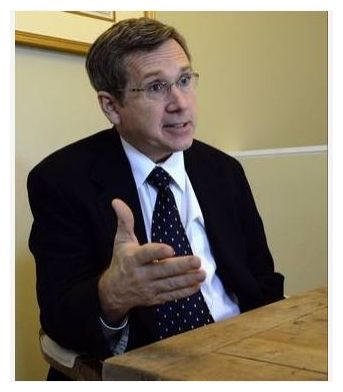
© Bill Zars/Daily Herald, Chicago
U.S. Sen. Mark Kirk says relearning to walk was a frustrating, exhausting process that came with a breakthrough moment.
Illinois Senator Mark Kirk has wrestled with lots of devilish political issues during his 28-year political career, but after suffering a stroke one year ago, he claims he had a very different experience: an encounter with angels.
The Republican senator was recovering from
a massive stroke in the right side of his brain at Northwestern Memorial Hospital's Intensive Care Unit in Chicago when Kirk said three angels visited him, the Chicago area's
Daily Herald reported.
Standing at the foot of his hospital bed, the angels, Kirk said, asked him, "You want to come with us?"
"No," Kirk said he told them matter-of-factly. "I'll hold off."
Kirk, 53, has spent the past year undergoing intensive therapy to help him regain his ability to walk and perform other basic functions. Kirk's mind, according to his surgeon Dr. Richard Fessler, is still very active. "His thought process is normal, and his mental state remains sharp," Fessler told the
Daily Herald.Kirk now joins an estimated 8 million Americans who claim to have received celestial visitors or had some other type of
near-death experience (NDE): The congressman sensed he was close to death in the days following his stroke. "A thing goes off in your head that this is the end," Kirk told the
Daily Herald.

